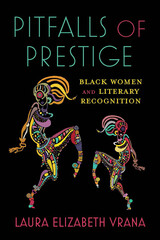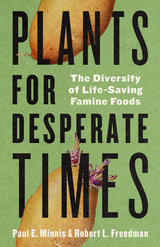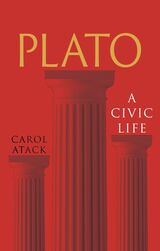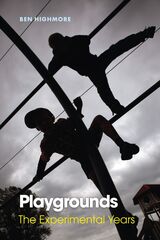101 books about Books and 6
start with A
101 books about Books and 6
101 books about Books
6 start with A start with A
6 start with A start with A

Against the Jews and the Gentiles
Books I–IV
Giannozzo Manetti
Harvard University Press, 2017
Giannozzo Manetti (1396–1459) was a celebrated humanist orator, historian, philosopher, and scholar of the early Renaissance. Son of a wealthy Florentine merchant, he participated actively in the public life of the Florentine republic and embraced the new humanist scholarship of the quattrocento, oriented to the service of the state and the reform of religion. Mastering not only classical Latin but also Greek and Hebrew, he gained access to a whole library of sources previously unknown in the Latin West. Among the fruits of his studies is his treatise Against the Jews and the Gentiles, an apologia for Christianity in ten books that redefines religion in terms of “true piety,” and relates the historical development of the pagan and Jewish religions to the life of Jesus. The present volume includes the first critical edition of Books I–IV, together with the first translation of those books into any modern language.
[more]
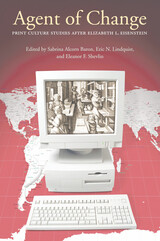
Agent of Change
Print Culture Studies after Elizabeth L. Eisenstein
Sabrina Alcorn Baron
University of Massachusetts Press, 2007
Inspiring debate since the early days of its publication, Elizabeth L. Eisenstein's The Printing Press as an Agent of Change: Communications and Cultural Transformations in Early-Modern Europe (1979) has exercised its own force as an agent of change in the world of scholarship. Its path-breaking agenda has played a central role in shaping the study of print culture and "book history"—fields of inquiry that rank among the most exciting and vital areas of scholarly endeavor in recent years.
Joining together leading voices in the field of print scholarship, this collection of twenty essays affirms the catalytic properties of Eisenstein's study as a stimulus to further inquiry across geographic, temporal, and disciplinary boundaries. From early modern marginalia to the use of architectural title pages in Renaissance books, from the press in Spanish colonial America to print in the Islamic world, from the role of the printed word in nation-building to changing histories of reading in the electronic age, this book addresses the legacy of Eisenstein's work in print culture studies today as it suggests future directions for the field.
In addition to a conversation with Elizabeth L. Eisenstein, the book includes contributions by Peng Hwa Ang, Margaret Aston, Tony Ballantyne, Vivek Bhandari, Ann Blair, Barbara A. Brannon, Roger Chartier, Kai-wing Chow, James A. Dewar, Robert A. Gross, David Scott Kastan, Harold Love, Paula McDowell, Jane McRae, Jean-Dominique Mellot, Antonio Rodr'guez-Buckingham, Geoffrey Roper, William H. Sherman, Peter Stallybrass, H. Arthur Williamson, and Calhoun Winton.
Joining together leading voices in the field of print scholarship, this collection of twenty essays affirms the catalytic properties of Eisenstein's study as a stimulus to further inquiry across geographic, temporal, and disciplinary boundaries. From early modern marginalia to the use of architectural title pages in Renaissance books, from the press in Spanish colonial America to print in the Islamic world, from the role of the printed word in nation-building to changing histories of reading in the electronic age, this book addresses the legacy of Eisenstein's work in print culture studies today as it suggests future directions for the field.
In addition to a conversation with Elizabeth L. Eisenstein, the book includes contributions by Peng Hwa Ang, Margaret Aston, Tony Ballantyne, Vivek Bhandari, Ann Blair, Barbara A. Brannon, Roger Chartier, Kai-wing Chow, James A. Dewar, Robert A. Gross, David Scott Kastan, Harold Love, Paula McDowell, Jane McRae, Jean-Dominique Mellot, Antonio Rodr'guez-Buckingham, Geoffrey Roper, William H. Sherman, Peter Stallybrass, H. Arthur Williamson, and Calhoun Winton.
[more]
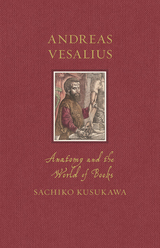
Andreas Vesalius
Anatomy and the World of Books
Sachiko Kusukawa
Reaktion Books, 2024
A revisionist biography of Andreas Vesalius—the father of modern anatomy—as deeply shaped by Renaissance culture.
In 1543 the young and ambitious physician Andreas Vesalius published one of the most famous books in the history of medicine, On the Fabric of the Human Body. While we often think of dissection as destroying the body, Vesalius believed that it helped him understand how to construct the human body. In this book, Sachiko Kusukawa shows how Vesalius’s publication emerged from the interplay of Renaissance art, printing technology, and classical tradition. She challenges the conventional view of Vesalius as a proto-modern, anti-authoritarian father of anatomy through a more nuanced account of how Vesalius exploited cultural and technological developments to create a big and beautiful book that propelled him into imperial circles and secured his enduring fame.
In 1543 the young and ambitious physician Andreas Vesalius published one of the most famous books in the history of medicine, On the Fabric of the Human Body. While we often think of dissection as destroying the body, Vesalius believed that it helped him understand how to construct the human body. In this book, Sachiko Kusukawa shows how Vesalius’s publication emerged from the interplay of Renaissance art, printing technology, and classical tradition. She challenges the conventional view of Vesalius as a proto-modern, anti-authoritarian father of anatomy through a more nuanced account of how Vesalius exploited cultural and technological developments to create a big and beautiful book that propelled him into imperial circles and secured his enduring fame.
[more]
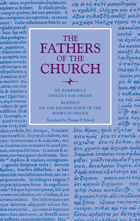
Apology for Origen; On the Falsification of the Books of Origen
Pamphilus
Catholic University of America Press, 2010
Presented here for the first time in English translation (from Rufinus's Latin version) is the Apology for Origen, the sole surviving work of St. Pamphilus of Caesarea (d. 310 AD), who was one of the most celebrated priest-martyrs of the ancient Church
[more]
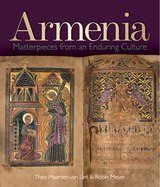
Armenia
Masterpieces from an Enduring Culture
Theo Maarten van Lint and Robin Meyer
Bodleian Library Publishing, 2015
Between East and West, Armenian culture bears the influence of the country’s long history of foreign occupation, with a vibrant national art and literature that reinterprets elements from a wide variety of cultures, from the Sasanian dynasty of Iran to the Byzantine Empire.
Published to accompany an exhibition at the Bodleian Library, Armenia: Masterpieces from an Enduring Culture draws on the Libraries’ magnificent collection of Armenian manuscripts and early printed books, as well as works of art and religious artifacts to tell the story of the region. The book contains nearly two hundred color illustrations of some of the most treasured masterpieces, from philosophical treatises to splendidly illuminated gospel manuscripts. Also including four essays by experts in the field, the book affords ample insight into the perseverance of the Armenian people in the face of tremendous adversity.
Published to accompany an exhibition at the Bodleian Library, Armenia: Masterpieces from an Enduring Culture draws on the Libraries’ magnificent collection of Armenian manuscripts and early printed books, as well as works of art and religious artifacts to tell the story of the region. The book contains nearly two hundred color illustrations of some of the most treasured masterpieces, from philosophical treatises to splendidly illuminated gospel manuscripts. Also including four essays by experts in the field, the book affords ample insight into the perseverance of the Armenian people in the face of tremendous adversity.
[more]
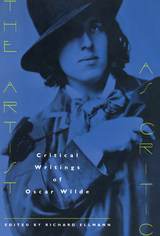
The Artist as Critic
Critical Writings of Oscar Wilde
Oscar Wilde
University of Chicago Press, 1982
Although known primarily as the irreverent but dazzlingly witty playwright who penned The Importance of Being Earnest, Oscar Wilde was also an able and farsighted critic. He was an early advocate of criticism as an independent branch of literature and stressed its vital role in the creative process. Scholars continue to debate many of Wilde's critical positions.
Included in Richard Ellmann's impressive collection of Wilde's criticism, The Artist as Critic, is a wide selection of Wilde's book reviews as well as such famous longer works as "The Portrait of Mr. W.H.," "The Soul Man under Socialism," and the four essays which make up Intentions. The Artist as Critic will satisfy any Wilde fan's yearning for an essential reading of his critical work.
"Wilde . . . emerges now as not only brilliant but also revolutionary, one of the great thinkers of dangerous thoughts."—Walter Allen, New York Times Book Review
"The best of Wilde's nonfictional prose can be found in The Artist as Critic."—Michael Dirda, Washington Post Book World
Included in Richard Ellmann's impressive collection of Wilde's criticism, The Artist as Critic, is a wide selection of Wilde's book reviews as well as such famous longer works as "The Portrait of Mr. W.H.," "The Soul Man under Socialism," and the four essays which make up Intentions. The Artist as Critic will satisfy any Wilde fan's yearning for an essential reading of his critical work.
"Wilde . . . emerges now as not only brilliant but also revolutionary, one of the great thinkers of dangerous thoughts."—Walter Allen, New York Times Book Review
"The best of Wilde's nonfictional prose can be found in The Artist as Critic."—Michael Dirda, Washington Post Book World
[more]
READERS
Browse our collection.
PUBLISHERS
See BiblioVault's publisher services.
STUDENT SERVICES
Files for college accessibility offices.
UChicago Accessibility Resources
home | accessibility | search | about | contact us
BiblioVault ® 2001 - 2024
The University of Chicago Press


